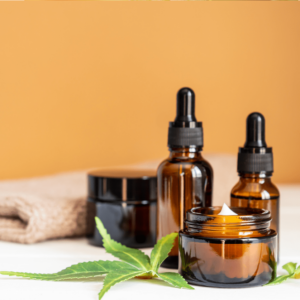Here is a link to a similar question that one of our doctors answered about bladder cancer: https://www.hellomd.dev/answers/59b1940c1a5caf1d53dd74fb/what-do-you-recommend-for-bladder-cancer
nsavelli
Hello,
A study published in The Journal of Urology concluded that cannabis users were 45% less likely to develop bladder cancer; they also found that tobacco use was the most significant risk factor for developing bladder cancer and that cannabis use was also associated with a decreased risk in tobacco smokers.
https://www.ncbi.nlm.nih.gov/pubmed/25623697
That study did not attempt to gauge whether CBD might be a viable treatment option for patients already with bladder cancer. However, there are several studies which show that cannabis has multiple anti-tumor properties, including:
- a 2010 study that concluded that CBD has anti-carcinogenic effects and may be a treatment option for treating highly invasive cancers;
https://www.ncbi.nlm.nih.gov/pubmed/19914218 - a 2012 study that concluded that CBD inhibits the growth of tumors by preventing the formation of blood vessels feeding the tumor, which “supports the hypothesis that CBD has potential as an effective agent in cancer therapy.”;
- and several others https://www.ncbi.nlm.nih.gov/pmc/articles/PMC4791144/
Although, because there are several studies indicating that THC also has anti-carcinogenic properties, I recommend that you consider incorporating THC into your treatment regimen. To help guide you through the multiple treatment strategies of treating any cancer with cannabis, I recommend that you consult with a physician. I wish you and your family the best.
drkim
Hello,
A study published in The Journal of Urology concluded that cannabis users were 45% less likely to develop bladder cancer; they also found that tobacco use was the most significant risk factor for developing bladder cancer, which was reduced in toabocco smokers who also used cannabis.
https://www.ncbi.nlm.nih.gov/pubmed/25623697
That study did not attempt to gauge whether CBD might be a viable treatment option for patients already with bladder cancer. However, there are several studies which show that cannabis has multiple anti-cancer properties, including:
- a 2010 study concluding that CBD has anti-carcinogenic effects and may become a treatment option for highly invasive cancers;
https://www.ncbi.nlm.nih.gov/pubmed/19914218 - and a 2012 study concluding that CBD inhibits the growth of tumors by preventing the formation of the blood vessels feeding it, supporting “the hypothesis that CBD has potential as an effective agent in cancer therapy.”;
- and several others https://www.ncbi.nlm.nih.gov/pmc/articles/PMC4791144/
Although, because there are several studies concluding that THC also has anti-carcinogenic properties, I recommend that you consider incorporating both CBD and THC into your treatment regimen. I wish you and your family the best.
drkim
Hello,
A study published in The Journal of Urology concluded that cannabis users were 45% less likely to develop bladder cancer; they also found that tobacco use was the most significant risk factor for developing bladder cancer, which was reduced in tobacco smokers who also used cannabis.
https://www.ncbi.nlm.nih.gov/pubmed/25623697
That study did not attempt to gauge whether CBD might be a viable treatment option for patients already with bladder cancer. However, there are several studies showing that cannabis has multiple anti-cancer properties, including:
- a 2010 study concluding that CBD inhibits cancer cell invasion and revealed a significant inhibition of lung metastasis in CBD-treated mice.
https://www.ncbi.nlm.nih.gov/pubmed/19914218 - and a 2012 study concluding that CBD inhibits the growth of tumors by preventing the formation of the blood vessels feeding it — supporting “the hypothesis that CBD has potential as an effective agent in cancer therapy”;
https://www.ncbi.nlm.nih.gov/pubmed/22624859 - and several others
https://www.ncbi.nlm.nih.gov/pmc/articles/PMC4791144/
Although, because there are several studies concluding that THC also has anti-carcinogenic properties, I recommend that you consider incorporating both CBD and THC into your treatment regimen. I wish you and your family the best.
drkim
Hello,
A study published in The Journal of Urology concluded that cannabis users were 45% less likely to develop bladder cancer; they also found that tobacco use was the most significant risk factor for developing bladder cancer, which was reduced in tobacco smokers who also used cannabis.
https://www.ncbi.nlm.nih.gov/pubmed/25623697
That study did not attempt to gauge whether CBD might be a viable treatment option for patients already with bladder cancer. However, there are several studies showing that cannabis has multiple anti-cancer properties, including:
- a 2010 study concluding that CBD inhibits cancer cell invasion and significantly reduced lung metastasis in CBD-treated mice;
https://www.ncbi.nlm.nih.gov/pubmed/19914218 - and a 2012 study concluding that CBD inhibits the growth of tumors by preventing the formation of the blood vessels feeding it — supporting the hypothesis that CBD has potential as an effective agent in cancer therapy;
https://www.ncbi.nlm.nih.gov/pubmed/22624859 - and several others.
https://www.ncbi.nlm.nih.gov/pmc/articles/PMC4791144/
Although, because there are several studies concluding that THC also has several anti-carcinogenic properties, I recommend that you consider incorporating both CBD and THC into your treatment regimen. I wish you and your family the best.
drkim
Hello,
A study published in The Journal of Urology concluded that cannabis users were 45% less likely to develop bladder cancer. They also found that tobacco use was the most significant risk factor for developing bladder cancer, which was reduced in tobacco smokers who also used cannabis.
https://www.ncbi.nlm.nih.gov/pubmed/25623697
That study did not attempt to gauge whether CBD might be a viable treatment option for patients already with bladder cancer. However, there are several studies showing that cannabis has multiple anti-cancer properties, including:
- a 2010 study concluding that CBD inhibits cancer cell invasion, significantly inhibiting lung metastasis in CBD-treated mice;
https://www.ncbi.nlm.nih.gov/pubmed/19914218 - and a 2012 study concluding that CBD inhibits the growth of tumors by preventing the formation of the blood vessels feeding it;
https://www.ncbi.nlm.nih.gov/pubmed/22624859 - and several others.
https://www.ncbi.nlm.nih.gov/pmc/articles/PMC4791144/
Although, because there are several studies concluding that THC also has several anti-carcinogenic properties, I recommend that you consider incorporating both CBD and THC into your treatment regimen. I wish you and your family the best.
drkim
Products with higher concentrations of CBD vs THC, such as 20CBD:1THC, will lessen, or even eliminate psychoactive effects — which is why they are so popular. However, you should consult with a physician who can guide you in choosing appropriate ratios, dosages and otherwise. Dosages will vary according to the patient’s goals, pain level, cannabis-tolerance, current medications, the CBD to THC ratio and other factors.
Here are a few products, offered in varying ratios of CBD:THC to consider:
- https://www.cbd.org/products/cbd-sublingual-spray
- https://dosist.com/pen-relief/
- https://www.cbd.org/products/cbd-chocolate
- https://shop.lordjones.com/collections/products/products/lord-jones-sigur-berry-high-cbd-gumdrops
- https://sensiproducts.com/product/sensi-chew-insomnia-plus-pure-cbd-melatonin/
- https://kivaconfections.com/products/bars/ginger
Please consult with a physician before starting any cannabis treatment regimen.
drkim
Products with higher concentrations of CBD vs THC, such as 20CBD:1THC, will lessen, or even eliminate psychoactive effects — which is why they are so popular. However, you should consult with a physician who can guide you in choosing appropriate ratios, dosages and otherwise. Dosages will vary according to the patient’s goals, pain level, cannabis-tolerance, current medications, the CBD to THC ratio and other factors.
Here are a few products, offered in varying ratios of CBD:THC to consider:
- https://www.cbd.org/products/cbd-sublingual-spray
- https://dosist.com/pen-relief/
- https://www.cbd.org/products/cbd-chocolate
- https://shop.lordjones.com/collections/products/products/lord-jones-sigur-berry-high-cbd-gumdrops
- https://sensiproducts.com/product/sensi-chew-insomnia-plus-pure-cbd-melatonin/
- https://kivaconfections.com/products/bars/ginger
drkim
You need to take a very concentrated dose of THC, not CBD. You should look for “RSO” or “Rick Simpson” Oil. There are lots of scam artists, so you need to know what you’re doing. It’s very expensive. You can make it yourself if you have access to an entire plant. More information here:
https://phoenixtears.ca/dosage-information/
I’ve attached a dosing chart. You start out with just a rice-grain-sized dose and work your way up to a full gram a day. Good luck!
cheycobb
This is an important question to answer properly because many people have questions about cannabis and cancer. I’m assuming that you are looking for a scientific, or at least evidence-based answer. If you are seeking other information, such as “popular” (as in frequently heard about) plans for treating cancer with cannabis, or endorsements of preparations that people say cured their cancer, you should move on to a different answer from this one. Although in the laboratory cannabis has demonstrated effects on many biologal processes involved in cancer and the body’s response to cancer, some extemely promising, the difference between a laboratory observation and a treatment protocol developed with clinical science is huge. The real situation is this: no actual parameters for successfully treating any kind of cancer with medicinal cannabis have been determined through clinical science. Any other advice you receive will be folk medicine. Folk medicine is full of truths and wisdom, but it can be hard to tell which truths are the wise ones. I think it is also important to keep in mind that many cancer patients find great relief of the symptoms of both their illness, and their treatment, with medicinal cannabis. And, as I am endlessly pointing out, making use of the mood moderating, anti-anxiety, and other typically observed effects of cannabis in cancer is supported by the clinically validated observation that attitude and desire to go on are key elements in cancer survival.
drelkind





